Do you have a favorite mobile app, the one you use the most?
Yes, we all do have a favorite one like that!
Well, today, mobile apps have become the heartbeat of our digital existence.
They’re not just icons on our screens; they’re gateways to convenience, entertainment, and efficiency.
Transforming how we communicate, work, and navigate daily life, these pocket-sized powerhouses have etched themselves into the fabric of modern society.
On top of all, as the mobile app ecosystem grows, it becomes an exciting journey of innovation, connectivity, and limitless possibilities.
Here’s an interesting fact
Most of the adults in the US spend 88% of their phone time on mobile apps. That’s the green light for mobile app development companies and developers.
Therefore, with the right skills, you’re not just making apps; you’re crafting experiences that attract and retain users!
Welcome to the future of business, where success is literally at your fingertips with mobile apps.
In this article, we will delve deeper into the top technologies you can trust to develop an outstanding mobile app to make your idea a reality. Let’s start without further ado.
Which are the Top Five Programming Languages Used To Develop Mobile Apps Today?
These are the top five most popular programming languages for building mobile apps:
1. Swift
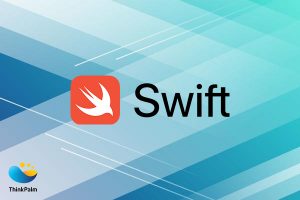
In the US, more than half of mobile users prefer iOS, making it the top choice. In addition, this loyalty highlights the importance of iOS app development.
Therefore, they use Swift, which is the go-to language for creating native iOS apps. Also, it’s open-source and designed for safety, speed, and user-friendliness.
On top of all, it’s like the more advanced successor to C and Objective-C, making coding interactive and enjoyable.
Here are the top features of Swift:
- Optimized Performance: Swift tunes performance for different uses.
- Built-in Error Handling: Mistakes are handled smoothly, making code strong and readable.
- Clean Syntax: Swift’s neat code makes APIs easy to read and maintain.
- Memory Efficiency: Swift keeps memory usage low, avoiding developer headaches.
- Interoperability: Swift easily works with existing Objective-C files, ensuring a smooth transition.
Choosing Swift means committing to a smooth and fun iOS development journey, one where complex tasks become clear and innovation blends seamlessly.
2. C++
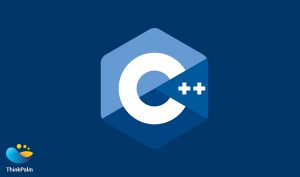
C++ is the backbone of many web languages today. In addition, it’s used in things like fancy interfaces, operating systems, and tiny embedded systems.
Also, with C++, you can make powerful and user-friendly mobile apps that work on different platforms like Android, iOS, and Windows without slowing down the app or compromising security.
Here are the top features of C++:
- Operates Across Devices: Write your code once, and it smoothly runs on various devices without any issues.
- User-Friendly: C++ has a simple way of working, making it suitable for different project types.
- Efficient Programming: C++ saves time and effort with numerous pre-made tools (like the Standard Template Library).
- Early Error Detection: It identifies mistakes early on, making it easier for developers to fix things before they become significant problems.
Therefore, C++ is a crucial tool for programmers, simplifying the building of various applications for different devices and systems.
3. Java

Java is a highly reliable and widely used programming language, especially in creating Android apps alongside languages like Kotlin, BASIC, and C++.
Here’s why Java is popular and powerful:
- Cross-Platform Compatibility: Write your code once, and it can run on various devices without extra effort.
- User-Friendly: Java is known for its flexibility and ease of use, making it suitable for various applications.
Key Features of Java:
- Security: It excels in creating robust and secure applications.
- Memory Management: Java handles memory automatically, preventing common issues like memory leaks.
- Platform Independence: Code runs smoothly on different devices thanks to the Java Virtual Machine (JVM).
- Speedy Execution: Java’s just-in-time compilation ensures fast program execution.
- Standard Libraries: Comes with comprehensive standard libraries for graphics, networking, and more.
- Portability and Code Reusability: Known for its portability, Java allows developers to reuse code across different projects.
In summary, due to its reliability and broad acceptance, Java is a go-to language for building various applications.
Also Read: Mobile App Security | A Comprehensive Guide To Secure Your Apps | Risks & Top Tools
4. HTML5
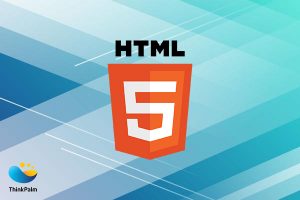
HTML5 is the latest version of the language that structures web content. On top of all, it’s a game-changer for mobile apps because:
- Works Everywhere: Easily create apps for different platforms, giving users a great experience.
- Consistency Across Browsers: Your app looks and works the same on different browsers, keeping things reliable.
- Fits Any Screen: Adapts to different screen sizes, making it user-friendly.
- Saves Time and Money: Write your code once, and it works everywhere, speeding up development and saving costs.
- Works Offline: Your app can still run without the internet, thanks to HTML5.
Top Features of HTML5:
- Easy Videos: Add videos without a fuss.
- Quick Graphics: Create and load graphics fast.
- Interactive: Make your app interactive and animated.
- Speedy Loading: Loads fast with cool features.
- Adapts Easily: Keeps up with changes and new web standards easily.
In short, HTML5 is perfect for making amazing mobile-friendly sites and making all processes simple for developers and users.
5. PHP
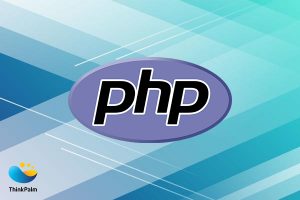
PHP is a top pick for web and mobile apps needing database power. It’s free, open-source, and versatile.
Originally for websites, PHP now excells in building hybrid mobile apps, too.
Also, awesome frameworks like Laravel and CodeIgniter are popular for big app projects.
PHP’s Top Features:
- Database Magic: Handles forms like a pro with support for various databases.
- Works Anywhere: Smoothly runs across platforms, browsers, and servers.
- Easy and Organized: Simple and organized, with ready-made functions for quick development.
Key Highlights:
- Smart Session Management: Manages sessions without wasting memory.
- Real-Time Monitoring: Keeps tabs on access and handles errors like a champ.
- Data Encryption: Built-in functions for secure user data.
In simple terms, PHP makes the complex tech work in big apps easier, making it a top choice for developers.
Top Tools To Help You Get Started With Building Amazing Mobile Apps
Looking to build your own mobile app? Check out these top tools that are perfect for both beginners and pros:
1. Apache Cordova

- What is it? Formerly known as PhoneGap, it’s a framework for building hybrid mobile apps using HTML, CSS, and JavaScript.
- Why use it? It enables cross-platform development, so you don’t have to create separate native apps for each platform.
- How does it work? It uses wrappers to execute native functions, accessing device data, sensors, and network status through standard APIs.
- What are its top features? It allows the mixing of native and hybrid code snippets, resulting in versatile apps that aren’t purely native or web-based.
2. App Accelerator

- What is it? An open-source, cross-platform development framework for building native apps on Android, iOS, and Windows using a single codebase.
- Why use it? Perfect for enterprises, it streamlines app development by allowing a single codebase for multiple platforms.
- How does it work? Cloud-based and accessible from anywhere, App Accelerator offers built-in UI components and an MVC app framework named “Alloy” for organized development.
- What are its Top Features? It offers built-in UI components, an organized Alloy Framework for MVC separation, real-time analytics, an open and extensible development environment, scalable cloud service support, and efficient API development tools.
In a nutshell, Appcelerator is a powerhouse for streamlined, cross-platform app development, offering a cloud-based solution with robust features.
3. RhoMobile Suite

- What is it? Formerly known as Rhodes Framework, it’s an open-source framework with development tools for creating cross-platform, data-centric native mobile apps.
- Why use it? Perfect for building native mobile apps for both business and consumer use. It lets developers write an app once and run it on iOS, Android, and Windows.
- How does it work? Utilizes standard web technologies like HTML5, JavaScript, CSS3, and Ruby to build native mobile apps, ensuring a consistent experience across different operating systems.
- What are its top features? RhoMobile simplifies app development with cross-platform compatibility, allowing developers to write once and deploy seamlessly across iOS, Android, and Windows, backed by a comprehensive suite and touted cost and time efficiency.
In a nutshell, RhoMobile Suite is your go-to for building cross-platform native mobile apps, offering a comprehensive suite of tools and claiming significant cost and time savings.
4. WidgetPad
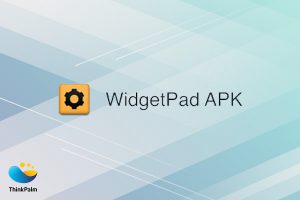
- What is it? WidgetPad is an excellent open-source framework offering a robust development environment for creating cross-platform mobile apps on iOS, Android, and WebOS.
- Why use it? Ideal for developers aiming to build apps across multiple platforms. It uses standard web technologies like CSS3, JavaScript, and HTML5, ensuring a secure and open development environment.
- How does it work? Utilizes standard web technologies for a seamless cross-platform experience. Offers features like source code editing, versioning, collaboration, debugging, project management, and distribution.
- What are its top Features? Make your code unique, manage versions smoothly, work seamlessly with your team, find and fix issues easily, organize projects efficiently, and distribute your apps effortlessly to different platforms.
WidgetPad simplifies the process of creating native applications, allowing you to add and customize common widgets effortlessly.
5. Solar2D

- What is it? Formerly known as Corona SDK, Solar2D is a free, open-source, cross-platform SDK for building two-dimensional (2D) mobile applications on Kindle, Android, and iOS. Vlad Shcherban currently maintains it.
- Why use it? Developers leverage Solar2D to create 2D mobile apps for Kindle, Android, iOS, and connected TV apps for Android TV, Apple TV, and Fire TV, all from a single codebase. It also supports desktop apps for Linux, macOS, and Windows devices.
- How does it work? Based on Lua, an open-source scripting language known for being lightweight, fast, and powerful. Solar2D Native, an operational mode, allows calling any native library or API to extend functionality.
- What are its top features? You can create apps for different devices with one codebase, enjoy essential plugins for business needs, leverage the power of Lua scripting, and call native libraries for added functionality with Solar2D
Solar2D is your go-to SDK for creating 2D mobile apps across various devices, backed by the power of Lua scripting and versatile plugin options.
Which Are The Three Major Types Of Mobile App Development Frameworks?
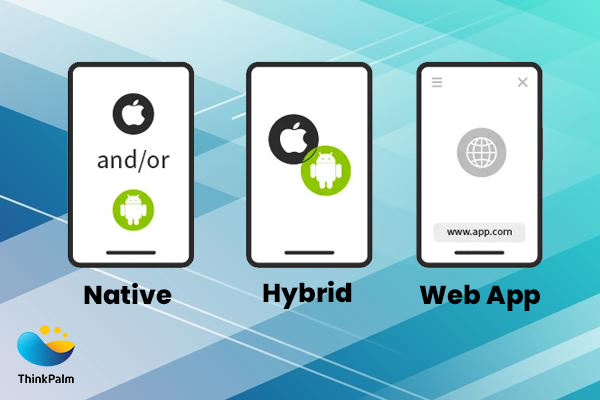
1. Native Apps
- What is it? Designed for platform-specific development (iOS, Android, Windows).
- How does it work? Utilizes languages like Java, Kotlin, Objective-C, and Swift for optimized performance on specific operating systems.
2. Web-Native Mobile Apps
- What is it? Promotes cross-platform development using web languages.
- How does it work? Frameworks like Ionic, Xamarin, React Native, and Flutter allow developers to use web languages for both native mobile apps and Progressive Web Apps (PWAs).
3. Hybrid Apps
- What is it? Combines features of native and cross-platform frameworks.
- How does it work? Offers plugins to embed code written in standard web technologies (HTML5, CSS3, JavaScript) into a native app. Examples include Apache Cordova and the Ionic framework’s Capacitor plugin.
In a nutshell, these frameworks cater to different development needs, from platform-specific optimization to cross-platform simplicity, offering a range of options for mobile app development.
Which Are The Top Mobile App Development Frameworks In 2024?
The following are the top seven mobile app development frameworks of 2024 that will help you leverage your specialties and create outstanding mobile apps.
1. Flutter

Developed by Google, Flutter excels in creating visually appealing and high-performance native interfaces for iOS and Android simultaneously.
2. React Native
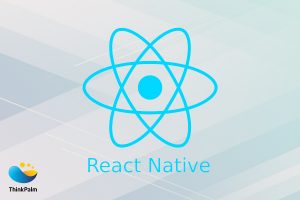
A Facebook creation, React Native allows developers to build mobile apps using React, providing a seamless and efficient development experience.

3. Ionic

Focused on cross-platform app development, Ionic is renowned for its ability to create mobile apps using web technologies like HTML, CSS, and JavaScript.
4. Xamarin
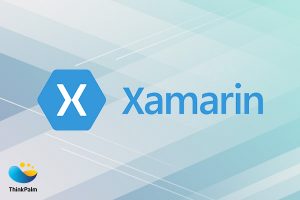
Owned by Microsoft, Xamarin allows developers to use C# for building native apps for iOS, Android, and Windows, ensuring a shared codebase.
5. NativeScript
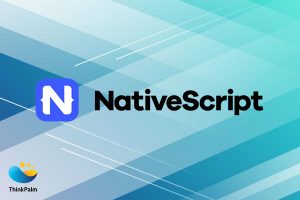
With NativeScript, developers can build truly native apps using JavaScript, TypeScript, or Angular, offering direct access to native APIs.
6. Felgo

Felgo is a framework that simplifies the development of 2D games and apps, offering powerful tools and plugins for a smooth development process.
7. Mobile Angular UI
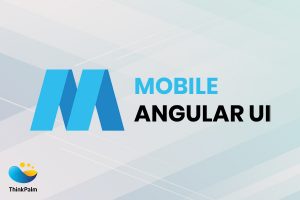
Combining AngularJS and Bootstrap, Mobile Angular UI is tailored for mobile app development, providing a responsive and touch-enabled UI.
What Are The Top Trends In Mobile App Development In 2024?
We have highlighted some key trends in mobile app development. Let’s delve into each one:
1. AI (Artificial Intelligence)
Why it’s trending?: AI enhances user experiences through personalization, chatbots, and predictive analytics. Also, it improves app functionality, making apps smarter and more intuitive.
2. Mobile Commerce
Why it’s trending?: The rise of mobile commerce is fueled by the increasing use of smartphones for shopping. Moreover, apps that integrate seamless payment gateways, personalized recommendations, and smooth user experiences are dominating the market.
3. AR and VR
Why they’re trending?: Both of these amazing technologies are transforming user interactions. Also, AR adds virtual elements to the real world, enhancing experiences like gaming and shopping. Similarly, VR immerses users in a virtual environment, popular in gaming, education, and simulations.
4. 5G Technology
Why it’s trending?: The rollout of 5G networks significantly boosts mobile app performance. Also, faster download speeds, lower latency, and increased connectivity enable the development of more sophisticated and data-intensive applications.
5. Low-Code Technology
Why it’s trending?: Low-code platforms simplify app development by minimizing manual coding. In addition, this trend accelerates the development process, making it more accessible to non-developers and reducing development costs.
These trends collectively shape the mobile app development landscape, driving innovation and improving the overall user experience.
Frequently Asked Questions
What is a mobile app?
A mobile app is software designed for smartphones and tablets, not computers, making tasks easy on the go.
Which is the most widely used mobile app framework?
The most widely used mobile app framework is React Native, known for its versatility and efficiency in developing cross-platform apps.
How can I select the right mobile app development framework?
Selecting the right mobile app development framework involves considering factors like project requirements, developer expertise, and the framework’s compatibility with your goals.
Are there any frameworks for Android mobile app development?
Yes, there are several frameworks for Android mobile app development, including Android Studio, Flutter, and Xamarin.
Which framework supports iOS mobile app development?
For iOS mobile app development, Swift is a commonly used programming language, often paired with Apple’s official framework, SwiftUI.
Which are the programming languages used for mobile app development?
Programming languages commonly used for mobile app development include Java and Kotlin for Android, Swift for iOS, and JavaScript for cross-platform frameworks like React Native.
How Can ThinkPalm Help You in Your Mobile App Development Journey?
This is the right time to unlock the potential of your business with a custom mobile app tailored to your audience’s needs—let ThinkPalm, the expert mobile app and software development services in the UK, help you build a top-notch mobile app from start to finish, using the latest technologies and tools to make it stand out. It’s not just about saving costs; it’s about boosting your business, being visible, and making meaningful connections with customers.
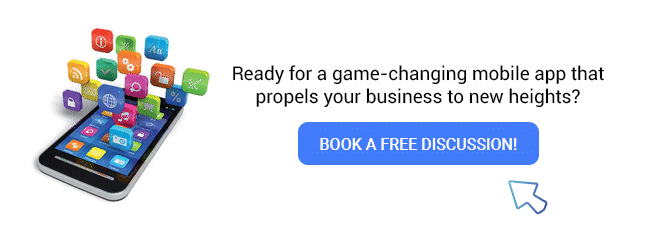
Author Bio
Vishnu Narayan is a dedicated content writer and a skilled copywriter working at ThinkPalm Technologies. More than a passionate writer, he is a tech enthusiast and an avid reader who seamlessly blends creativity with technical expertise. A wanderer at heart, he tries to roam the world with a heart that longs to watch more sunsets than Netflix!

